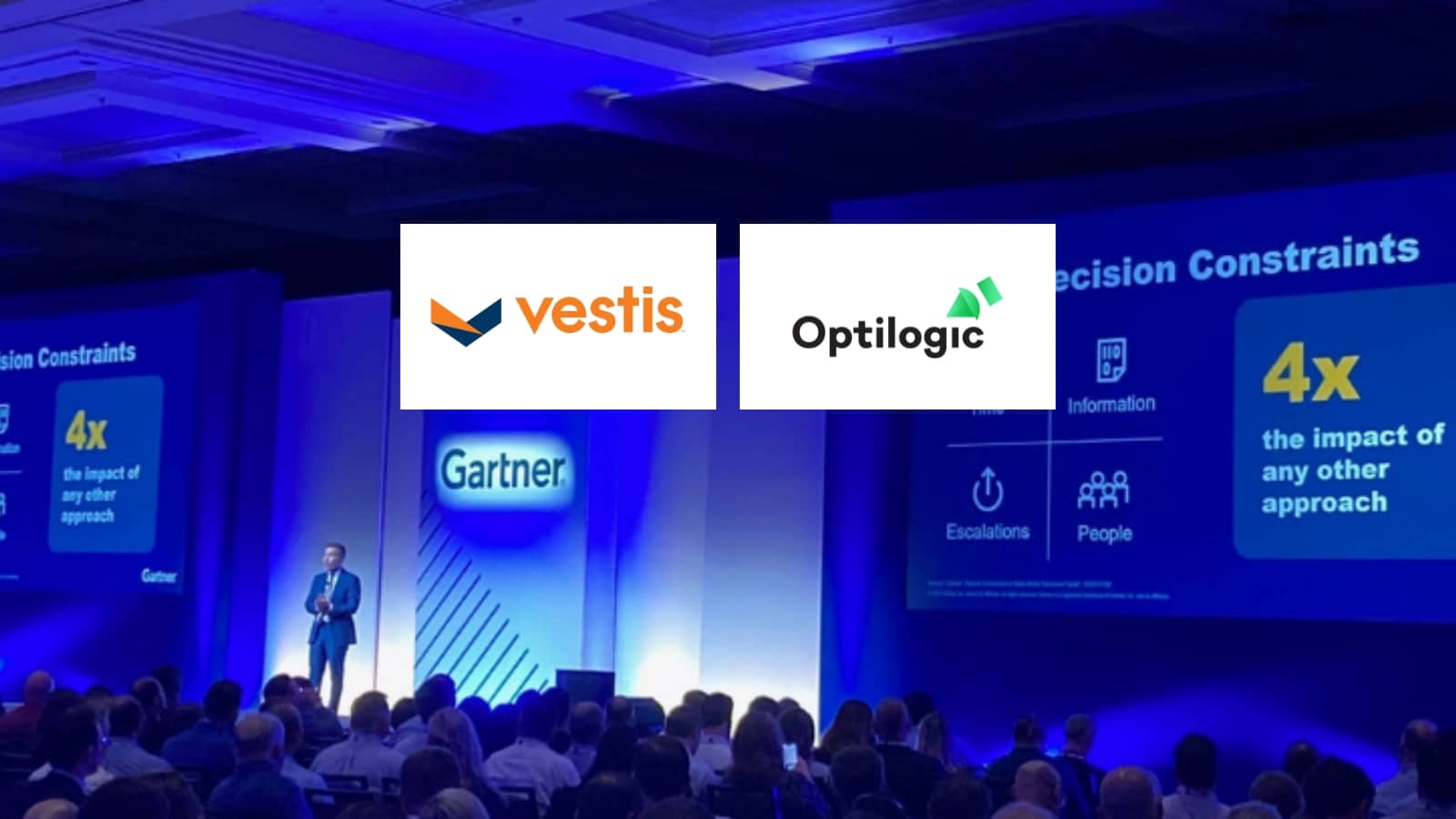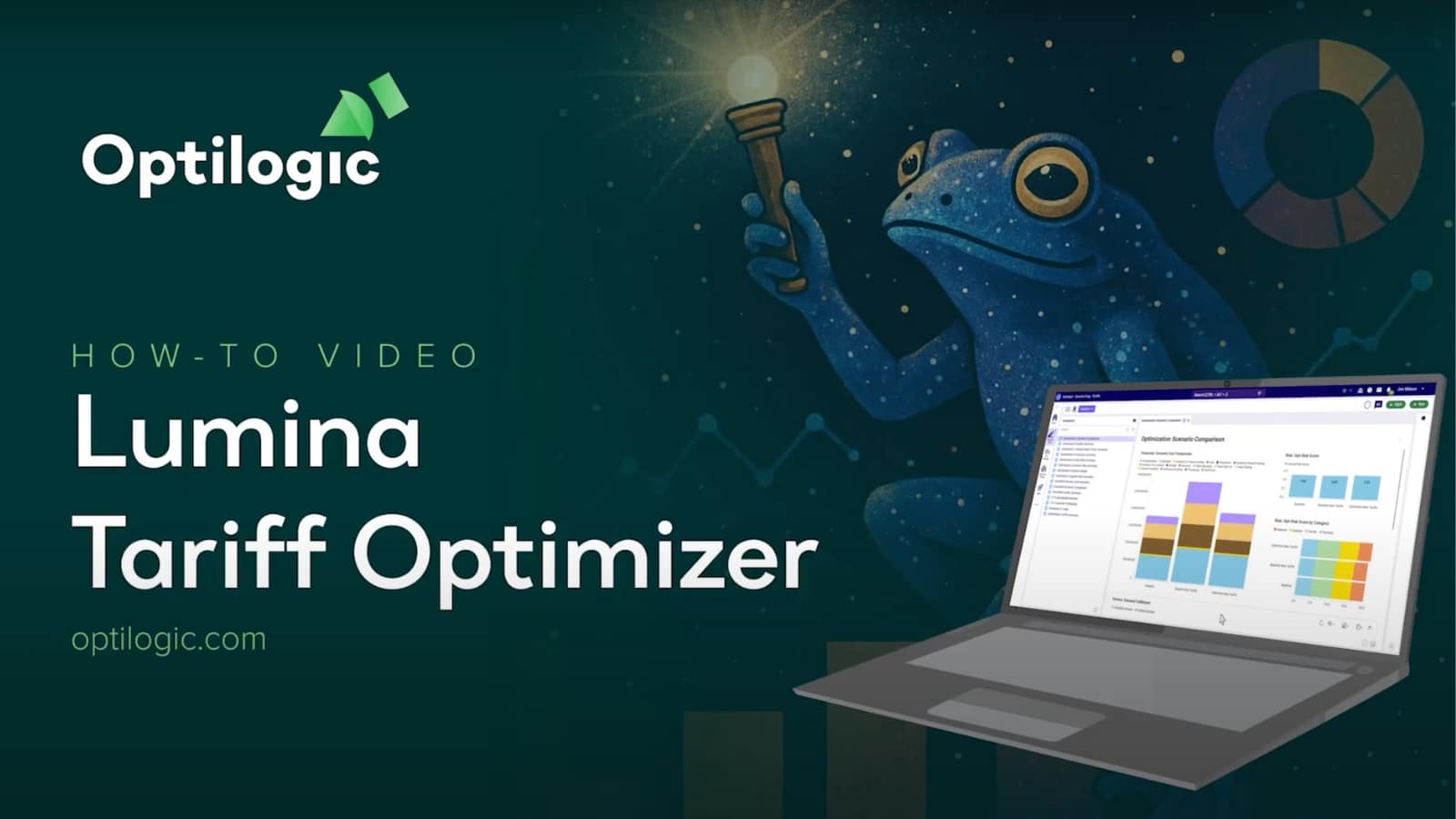Blog
Q&A: The Optilogic Atlas Extensible Platform
PUBLISHED ON:
June 16, 2023

Subscribe to Receive the Latest Supply Chain Design Resources
Optilogic Cosmic Frog is the fastest and best choice for supply chain network design within a simplified user interface. For skilled modelers and developers who want to create custom applications or tailored workflows to fit specific business problems, the Optilogic Atlas developer platform is the perfect solution.
What is Atlas?
Atlas is a robust coding environment within the Optilogic platform that puts the full power of Python in your hands, so you can code, debug, test, and execute your own models, or models from the Optilogic resource library. In this blog, we answer some of your most common questions about Atlas.
What types of custom applications and tailored workflows are possible?
The sky’s the limit! You can create simple tailored workflows to connect and automate data inputs into Cosmic Frog or automate output pushes to analytics tools like Tableau and PowerBI to enable key stakeholders to automatically push results to them, streamlining communication.
You can also call Optilogic’s Cosmic Frog solvers like Network Optimization, Simulation, and Risk (or write your own custom algorithm) from something as simple as an Excel workbook or a front-end React web UI. Think about how powerful it is to take an existing simple math Excel process that a member of your team is using today, and put the power of optimization and hyperscaling in their hands without having them have to change their process at all!
It’s as simple as this:
-
Add a simple button macro in Excel that calls Optilogic’s prebuilt APIs to run Network Optimization
-
Hyperscale the scenarios the user selects from Excel
-
Push the results back to that workbook so the user sees the output in a simple Excel graph, enabling them to make more intelligent decisions powered by optimization
No supply chain design modeling experience required!
If Python becomes a new standard then why Optilogic?
Python is already a standard. Depending on the surveying source, Python ranks between first to fourth for its adoption and use. Over the last 10-plus years it has continued to improve (especially in performance) and yet still has a simplicity to it. Our message is not that we’re differentiating against Python, but much rather with Python. Optilogic provides access to commercial solvers, hardware at scale on demand, no infrastructure headaches, and an accessible, highly-scalable cloud-native experience.
Does a free Optilogic account provide access to Atlas?
Yes! You get access to our premium platform from day one. No expensive tiers just to see if this makes sense for your use case. Resource library, scalability, community, APIs, everything we have, you have access to. However, upgrading to a Professional account unlocks massive parallelization and increases your solver hours.
Read: Build a Custom Supply Chain Application in the Optilogic Platform in 3 Steps
What skills are needed to use the Optilogic Atlas developer platform? Do I need to have extensive Python knowledge?
Some coding will always be necessary (we’re builders after all). That said, as long as you have some basic coding knowledge you will be successful. This is the primary reason why we have developed (and continue to develop) our resource library. As long as you are comfortable reading someone else’s code and making the minor modifications needed for your use case, all you have to do is snag a similar use case and get to work.
What are the typical data elements needed to build apps? Is there a standard data set?
There is no standard that must be followed, however, best practices are encouraged. To help, the resource library has a robust set of examples to work off, especially for cases where you’re not sure where to start. Commonly, builders start with static, often flat data that is uploaded, then as the use case is built out, they transition this static data over to connections.
Can you connect directly to a cloud database?
Yes, you can! Atlas comes with the proper Python libraries and API connectors to connect to various cloud databases. If you would like to connect your Optilogic models to a cloud database and are wondering how to get that configured we can help!
Can I hook up Optilogic to a low-code/no-code environment like bubble.io, AnaPlan, or others?
Absolutely—most low-code/no-code environments have robust support for making API calls and therefore can be hooked up to Optilogic with very little effort. If you are working on an app like this we would love to provide support if you run into any issues getting it up and running. Reach out to us at support@optilogic.com if you need some help and we’ll make sure you’re successful.
I’m an OR professional and while I do code, I’ve never used an API before. What is your confidence that a user like myself could get the APIs working? Where do I go if I get stuck?
We have built out the API integrations with this in mind. Our goal was to make the APIs as simple and direct so that even if you haven’t tapped an API before, this would not be difficult. We even have intelligent API documentation that you can access with your free account – just select the parameters, click “Try it Out” and the API code automatically generates for you! Between their simple design, our documentation where you can ‘practice’, and our model library, you should be good to go.
Scalability and flexibility look great with Optilogic. What is the recommended requirement to become a developer, from a back-end and front-end UI build perspective?
Currently, we are not focused on making a code-lite or code-free UI build. We’d recommend leveraging a tool in this space if you’re not comfortable building your own. Where we are focused is on making a better build experience for decision support technology to give you access to a massive hardware scale without dealing with complicated licensing, infrastructure, and costs. As long as you can read a bit of code, you’re ready with enough skills. Over time, we hope that you learn from our library and strengthen your skills to the point that you’re able to enable others to harness the power of optimizations and massive scaling!
Grow Your Knowledge
Optilogic and Vestis Corporation to Present on Supply Chain Design at Gartner Supply Chain Symposium/Xpo™ 2025
The leading supply chain design software innovator Optilogic today announced its Vice President of Professional Services Mark Outslay and Vice President, NA Logistics for Vestis Corporation Scott Roberts will present on supply chain design at the Gartner Supply Chain Symposium/Xpo™.



